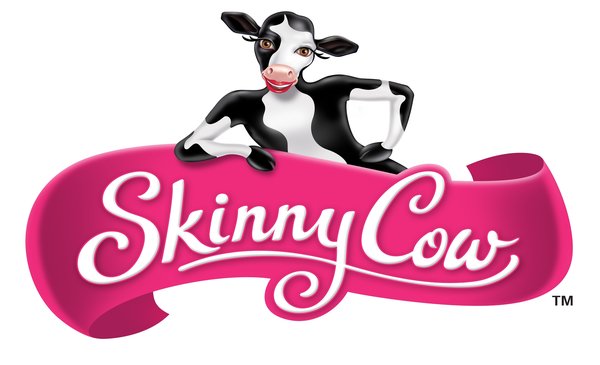
In the 90s we all got a bit carried away with the Internet. Marketers wondered when Internet marketing expenditure would exceed traditional forms of communication. One bestselling article in the Harvard Business Review concluded that the Internet would render brands obsolete.
Well beyond a decade later and some marketers have relatively mundane expectations of the Internet. Perhaps because everyone has created a high-information, brand-centric website and many companies now sell their products online. But there is a growing role for the Internet that has far more serious implications for brands. Implications that cannot be ignored even by the most web-phobic of marketers. Consider two highly successful, but hugely divergent, brands.
Moben Kitchens is one of the UK’s biggest suppliers and fitters of kitchens.
It has an impressive website which showcases some of the company’s attractive kitchen designs and lists more than 200 of its outlets.
Skinny Cow is a low-fat ice-cream bar. Originally launched in the US, the brand was introduced to the UK in January of 2004 by Richmond Foods. Skinny Cow’s website,(UK version) shows off its three flavors and makes much of the fact that at less than 2% fat and 90 calories a bar, it is a genuine treat for those trying to lose weight.
Frankly, neither website is stunning. But what is interesting is what happens when you leave the controlled environment of the intended brand page and run a Google search on the two brands.
Skinny Cow’s search reveals a plethora of gushing, thankful comments from consumers. Ruth rates the bars as ‘better than sex’ and has been recommending Skinny Cow to all her fellow Weightwatchers. Claire describes the snack as ‘heaven on a stick (and not on my thighs)’. Terrie provides Skinny Cow lovers with a tip on how to create Skinny Cow desserts. Carole has written a poem to thank the Skinny Cow. Geraldine admits it is the first time she has ever written to a manufacturer to thank it for its product. Angela has read all the comments, but until she tried Skinny Cow, did not believe that a low-fat food could taste so good.
Moben is a very different story. It would be hard to find another brand that is so bound up with despair. Mrs Wright was left with two small children and no kitchen for eight weeks. Mrs Fewings offers a single piece of advice: ‘Do not touch Moben’. Neil has spent the past two weeks picketing his local Moben store in protest at the quality of his kitchen and Moben’s inability to reply to his complaints. Mrs Grant is now into her sixth month waiting for her kitchen to be completed. Charles from Leicester, meanwhile, has reached ‘breaking point’ because of Moben.
Marketers have always been keen to focus on the inputs to consumer decision-making they can control. All other influences are confined to that most derisory of black boxes – word of mouth.
In truth, customer-to-customer communications outweigh anything an agency can come up with.
A customer, just like you, speaking in a voice, like yours, for no other reason than to help another is a supremely affective and effective form of communication.
The Internet does not create this voice, but it does amplify it. With the introduction and rise of social media its impact grows daily. For up-and-coming brands such as Skinny Cow with genuine differentiation, the medium offers an enormous opportunity to build a brand without the big budgets of the indolent marketer. For under-performing brands such as Moben, it spells eventual disaster. The Internet does not make brands obsolete, just the bad ones.
30 SECONDS ON … BRANDS’ USE OF THE INTERNET
– The Q4 2007 Bellwether Report,the quarterly survey of marketing spend, revealed that traditional media budgets were revised down for the first time in a year. In contrast Internet spending increased.
– The same report indicated that companies now allocate 9% of their marketing spend to the web.
– The Interactive Advertising Bureau (IAB) announced in June that Internet advertising revenues reached $5.8 billion for the first quarter of 2008. The 2008 first quarter revenues are an 18.2 percent increase over the same period in 2007, and represent the second highest quarter ever recorded, after Q4 2007’s $5.9 billion.
– Search is one of the main drivers of brands’ use of new media channels. The IAB reported that Search marketing continues to dominate the online advertising space with a sustained growth of about 40% yearly since 2004.
The Blake Project Can Help: The Brand Positioning Workshop
Branding Strategy Insider is a service of The Blake Project: A strategic brand consultancy specializing in Brand Research, Brand Strategy, Brand Licensing and Brand Education





One comment
Lauren Himml
August 11, 2008 at 7:57 am
“The Internet does not make brands obsolete, just the bad ones.” The case for this seems very strong; likewise there is the ring of truth in “the medium [Internet] offers an enormous opportunity to build a brand without the big budgets of the indolent marketer.”
This leads me to wonder: If one can build a brand without marketing budgets (thanks to the internet), and marketing can’t compensate for a “bad” brand enough to save it (because of the internet), then does this mean that the internet has or will make marketing obsolete? Are you saying here that “that most derisory of black boxes – word of mouth” is actually MORE powerful than marketing? Or maybe the MOST powerful “form” of marketing?
Can it be considered marketing at all? I’d love to hear your thoughts on whether word of mouth can truly be called a form or “channel” of marketing, or are consumer voices on the internet some other force?
Comments are closed.